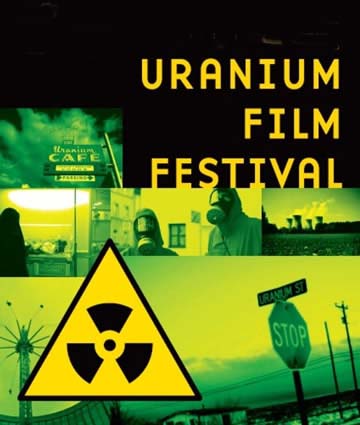Mainichi: “Nuclear devastation” for Japan, in peace time — Fukushima disaster “the same as war” -Buddhist Nun
[…]
Future historians looking back on our time may conclude that the nuclearaccident changed Japan not much less than the atomic bombs did. There’s a lot happening, where little was before. The weekly Shukan Gendai talks to three female lawmakers who lately bolted the governing Democratic Party of Japan, largely over its decision to reactivate two nuclear reactors in Oi, Fukui Prefecture. “Foreigners think the Japanese are sheep,” said one of them, Kuniko Tanioka. “But we’re raising our voices now, saying no to nuclear power, no to reactivation.”
[…]
“Perpetrators of the subway sarin affair were given death sentences,” she says. “The top people in the company that caused radiation contamination are still in their executive boardrooms, drawing high salaries. That’s odd, isn’t it?”
[…]
Nuclear Power Is Incompatible with the Way of the Buddha
“…
Buddhists Must Send a Message
Q: After the nuclear incident at Fukushima happened last year, Rev. Kono, as the President of the Japan Buddhist Federation (JBF), made the following comments in August about nuclear energy while considering the people who had become victims of the incident: “Who is making sacrifices to ensure our convenient lifestyles? Each person, individually, must think more about their responsibility. So that this kind of incident does not happen again, we all must adjust the way we look at our daily lifestyles.” Rev. Kono, then, in yourrole as the Chief Priest of the Myoshin-ji branch of Rinzai Zen in September issued a declaration calling on the abolition of nuclear power and then further in December helped to draft the JBF declaration entitled “Appeal for a Lifestyle without Dependence on Nuclear Power.” Today we would like to hear about Rev. Kono’s thoughts since the time that these declarations were made.
Rev. Kono: In a manner of speaking, it is about causes and conditions (hetu-pratyaya, innen). Two years ago I became the Chief Priest of the Myoshin-ji branch of the Rinzai Zen Denomination and then I became the Chairman of JBF. Since this latter position is a rotating one among the chief priests of the traditional Buddhist denominations, I couldn’t turn it down. Then the Great Eastern Japan Disaster struck, and there were critical victims whose lives and lifestyle rights were affected by the nuclear incident. I thought then that Buddhists should not become silent on this issue.
For myself, I would say that the fundamental teaching of Buddhism is to value life and respect human rights. The year before the disaster in November (2010), the World Fellowship of Buddhists (WFB) bi-annual general conference was held in Sri Lanka. At this time, I gave a speech while keeping in mind the armed conflict between the Tamils and Sinhala in that country. J.R. Jayewardene, who served as President of Sri Lanka from 1978-89, had been the Finance Minister during the time of the San Francisco Peace Accords of 1951 formally ending the Pacific War. As the representative of the Sri Lankan government at the time, he suggested waiving the rights of reparation towards Japan, citing the words of the Buddha from the Dhammapada that go,” Hatred is never appeased by hatred in this world. By non-hatred alone is hatred appeased. This is a law eternal.” (Vs. 5). I not only have a feeling of gratitude for this act, but also, while speaking about the critical self-reflection and confession for the enormous suffering brought on the various countries of Asia by Japan during the war, I wish for Sri Lanka to also open the way to world peace by following the teachings of the Buddha in these further words from the Dhammapada, “All tremble at violence; all fear death. Putting oneself in the place of another, one should not kill nor cause another to kill.” (Vs. 129)……”
http://jneb.jp/english/eiheijisymposiu/konoseka
Japanese Buddhists’ Increasing Involvement in
Anti-Nuclear Activism
Jonathan S. Watts
International Buddhist Exchange Center (IBEC)
Yokohama
July 2, 2012
“….From this writer’s own personal interest, this demonstration was the first at which a coordinated group of Buddhists participated beyond the regular activism of the small Nipponzan Myohoji order. A small but not insignificant group of 8 Buddhist priests and at least 5 lay followers representing AYUS (a Japanese Buddhist development NGO increasingly involved in the nuclear issue) and the Japan Network of Engaged Buddhists (JNEB) gathered amidst the crowd and, holding high the Buddhist flag, maintained a presence throughout the demonstration……”
No comments yet.
-
Archives
- May 2024 (12)
- April 2024 (367)
- March 2024 (335)
- February 2024 (345)
- January 2024 (375)
- December 2023 (333)
- November 2023 (342)
- October 2023 (366)
- September 2023 (353)
- August 2023 (356)
- July 2023 (362)
- June 2023 (324)
-
Categories
- 1
- 1 NUCLEAR ISSUES
- business and costs
- climate change
- culture and arts
- ENERGY
- environment
- health
- history
- indigenous issues
- Legal
- marketing of nuclear
- media
- opposition to nuclear
- PERSONAL STORIES
- politics
- politics international
- Religion and ethics
- safety
- secrets,lies and civil liberties
- spinbuster
- technology
- Uranium
- wastes
- weapons and war
- Women
- 2 WORLD
- ACTION
- AFRICA
- Atrocities
- AUSTRALIA
- Christina's notes
- Christina's themes
- culture and arts
- Fuk 2022
- Fuk 2023
- Fukushima 2017
- Fukushima 2018
- fukushima 2019
- Fukushima 2020
- Fukushima 2021
- general
- global warming
- Humour (God we need it)
- Nuclear
- RARE EARTHS
- Reference
- resources – print
- Resources -audiovicual
- World
- World Nuclear
- YouTube
-
RSS
Entries RSS
Comments RSS





Leave a comment